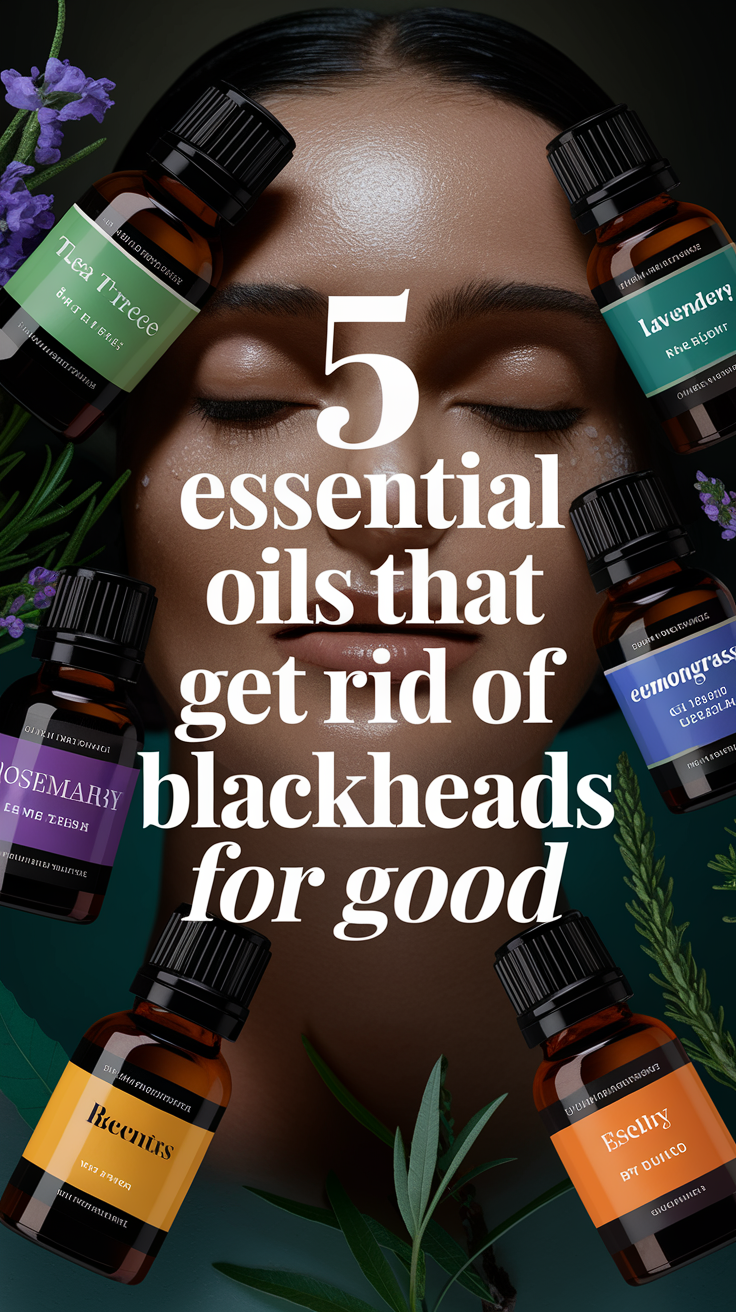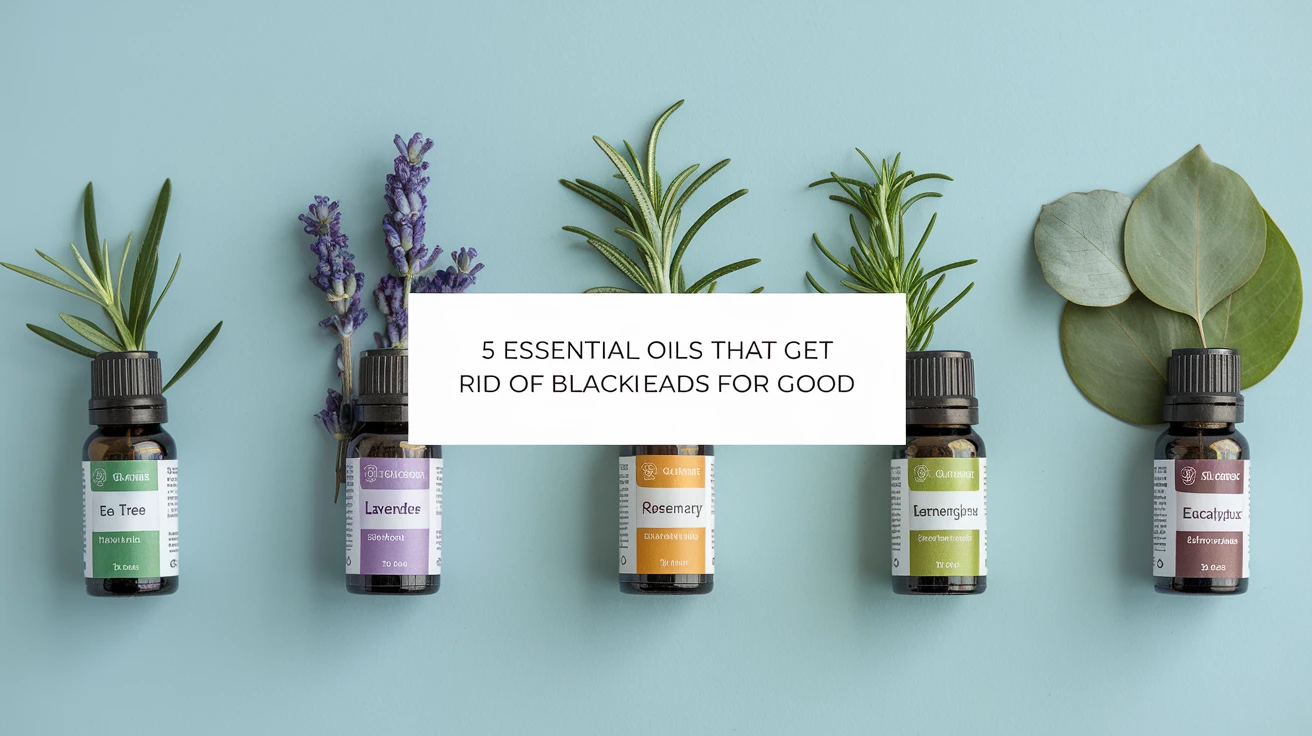
As an Amazon Associate, I may earn from qualifying purchases. Some links in this article are affiliate links, which support this site at no extra cost to you.
Struggling with stubborn blackheads can feel like an endless battle. As someone who’s tried countless over-the-counter products and expensive treatments, I understand the frustration. That’s why I was thrilled to discover the power of essential oils in treating blackheads naturally and effectively. These concentrated plant extracts not only help dissolve excess oil and remove dead skin cells but also provide antibacterial properties that prevent new blackheads from forming. In this comprehensive guide, I’ll share the five most effective essential oils that have transformed my skincare routine and helped countless others achieve clearer, smoother skin.
Before we dive into the specific oils, it’s important to understand what we’re dealing with. Blackheads occur when pores become clogged with excess oil and dead skin cells, which then oxidize and turn black when exposed to air. Unlike harsh chemical treatments that can strip your skin and potentially cause more problems, essential oils work with your skin’s natural processes to restore balance and clarity.
If you’re new to essential oils, starting with a high-quality essential oil set for skincare and a gentle carrier oil like organic jojoba oil is a great way to begin.
1. Tea Tree Oil: Nature’s Strongest Blackhead Fighter
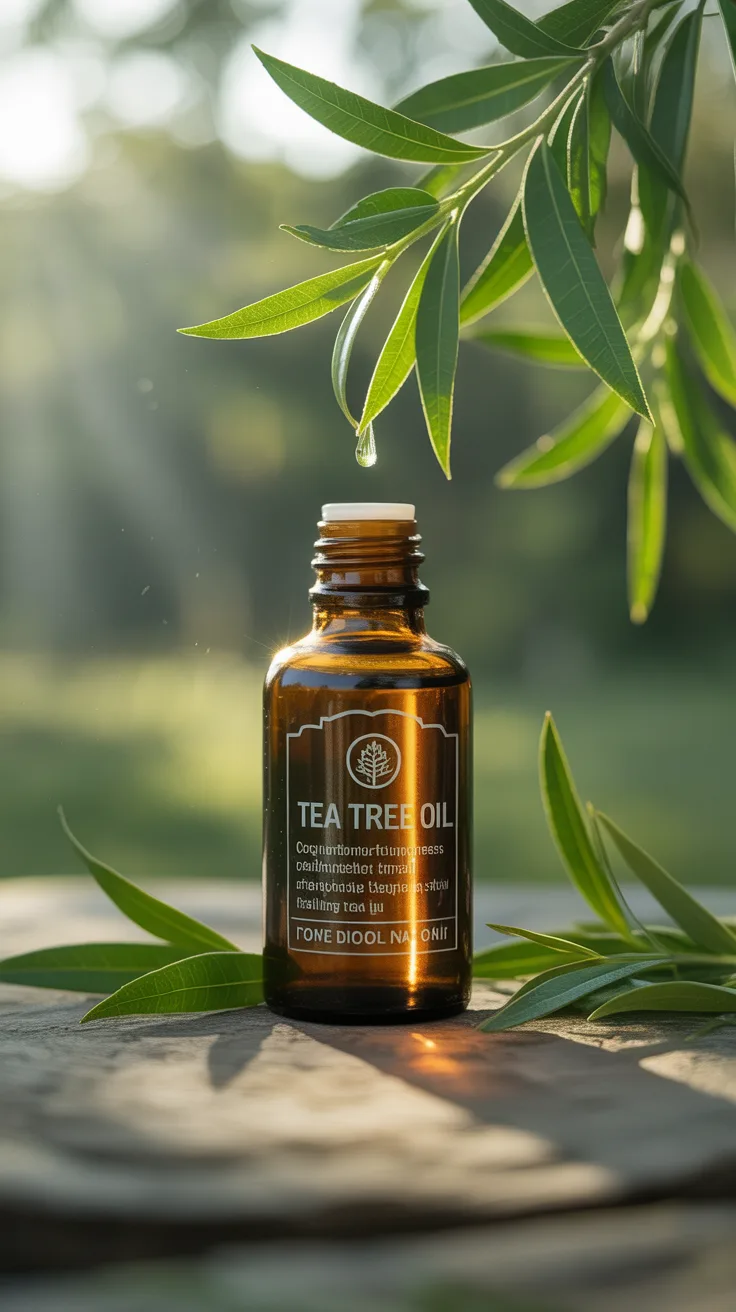
Tea tree oil stands as the undisputed champion in the fight against blackheads, and I can personally attest to its effectiveness. After struggling with persistent blackheads on my nose and chin, 100% pure tea tree essential oil became my go-to solution. This powerful essential oil contains natural antimicrobial properties that tackle the root causes of blackheads.
Why Tea Tree Oil Works
- Penetrates deep into pores to dissolve excess sebum
- Contains antimicrobial properties that fight acne-causing bacteria
- Reduces inflammation and redness
- Helps prevent future blackheads from forming
Application Guide for Tea Tree Oil
| Skin Type | Dilution Ratio | Carrier Oil |
|---|---|---|
| Sensitive | 1% (1 drop per 100 drops carrier oil) | Jojoba Oil |
| Normal | 2% (2 drops per 100 drops carrier oil) | Argan Oil |
| Oily | 3% (3 drops per 100 drops carrier oil) | Grapeseed Oil |

View on AmazonAs an Amazon Associate, I earn from qualifying purchases.

View on AmazonAs an Amazon Associate, I earn from qualifying purchases.
2. Lavender Oil: The Gentle Yet Effective Solution
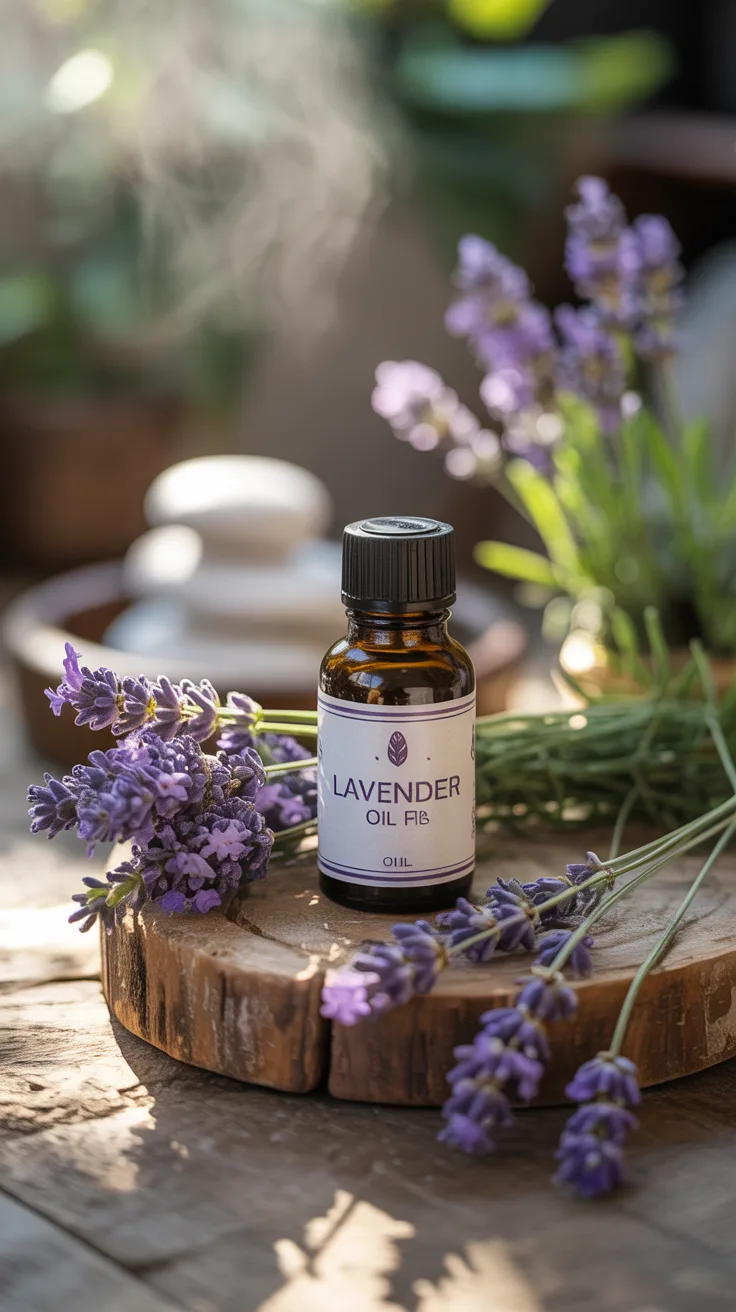
What makes lavender oil particularly special is its dual action as both a gentle skin soother and an effective blackhead fighter. During my skincare journey, I discovered that organic lavender essential oil was especially helpful during stress-related breakouts, as it seemed to calm both my skin and my mind.
Benefits of Lavender Oil
| Property | Benefit for Blackheads | Additional Skin Benefits |
|---|---|---|
| Anti-inflammatory | Reduces redness and swelling | Calms irritated skin |
| Antibacterial | Fights acne-causing bacteria | Prevents future breakouts |
| Balancing | Regulates oil production | Improves overall skin texture |
Best Application Methods
- Steam facial with 3-4 drops of lavender oil in a bowl of hot water
- Spot treatment mixed with pure aloe vera gel
- Nightly moisturizer addition (2 drops per tablespoon of your favorite non-comedogenic oil)
- Clay mask enhancement (2 drops per application using a gentle bentonite or kaolin clay)

View on AmazonAs an Amazon Associate, I earn from qualifying purchases.
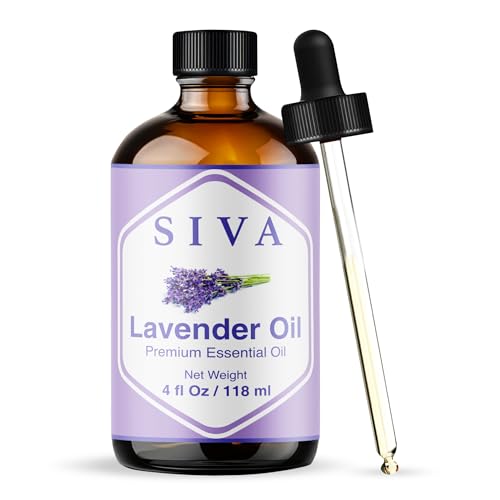
View on AmazonAs an Amazon Associate, I earn from qualifying purchases.
3. Rosemary Oil: Your Pore-Cleansing Powerhouse
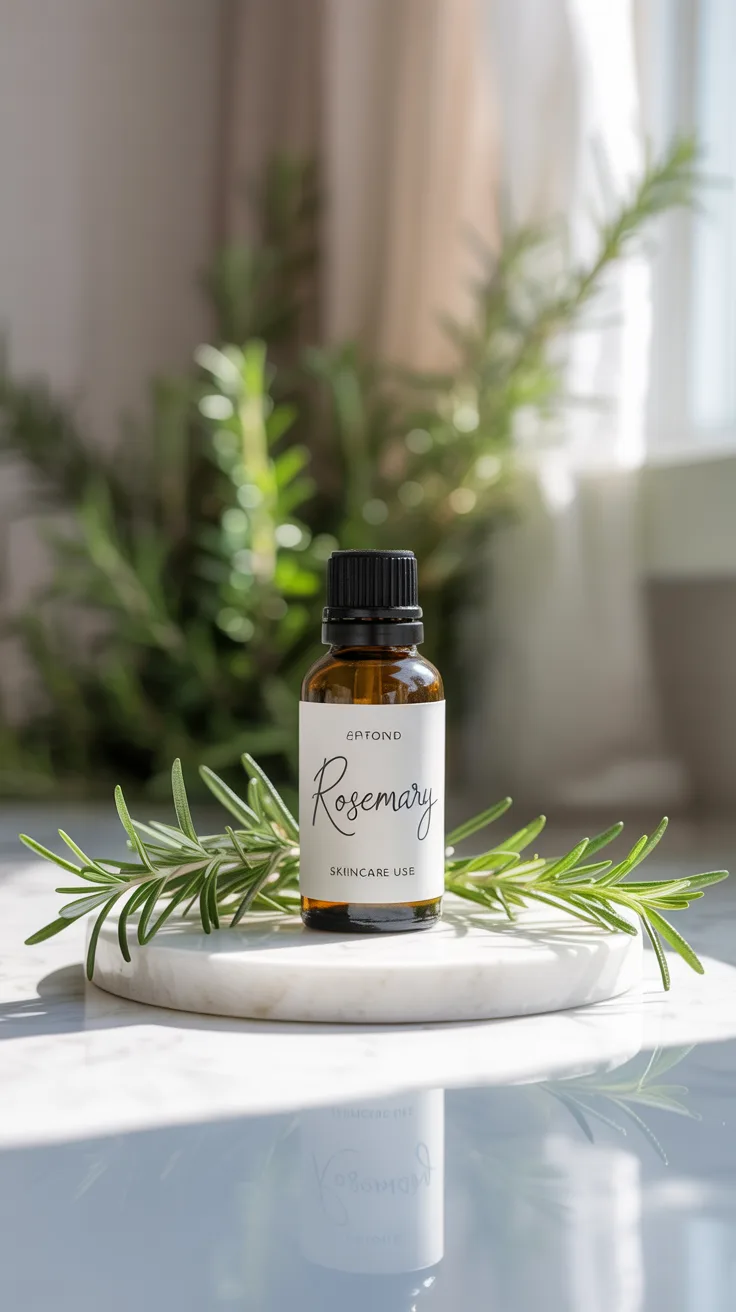
Rosemary oil has been a game-changer in my blackhead treatment routine. This refreshing essential oil not only helps clear existing blackheads but also works to prevent new ones from forming. Its natural astringent properties make it particularly effective for oily skin types. For best results, choose a high quality rosemary essential oil that is labeled for skincare use.
Key Properties of Rosemary Oil
- Natural astringent that tightens pores
- Antioxidant properties protect skin from environmental damage
- Regulates excess oil production
- Improves circulation for better skin health
Weekly Treatment Schedule
| Day | Treatment Type | Duration |
|---|---|---|
| Monday | Deep Cleansing Mask with rosemary and clay | 15 minutes |
| Wednesday | Spot Treatment with diluted rosemary oil | Overnight |
| Saturday | Steam Treatment with 2-3 drops rosemary oil | 10 minutes |
For masks and steam treatments, pairing rosemary with a simple at-home facial steamer or a gentle clay can amplify results.

View on AmazonAs an Amazon Associate, I earn from qualifying purchases.

View on AmazonAs an Amazon Associate, I earn from qualifying purchases.
4. Lemongrass Oil: The Tropical Blackhead Remedy
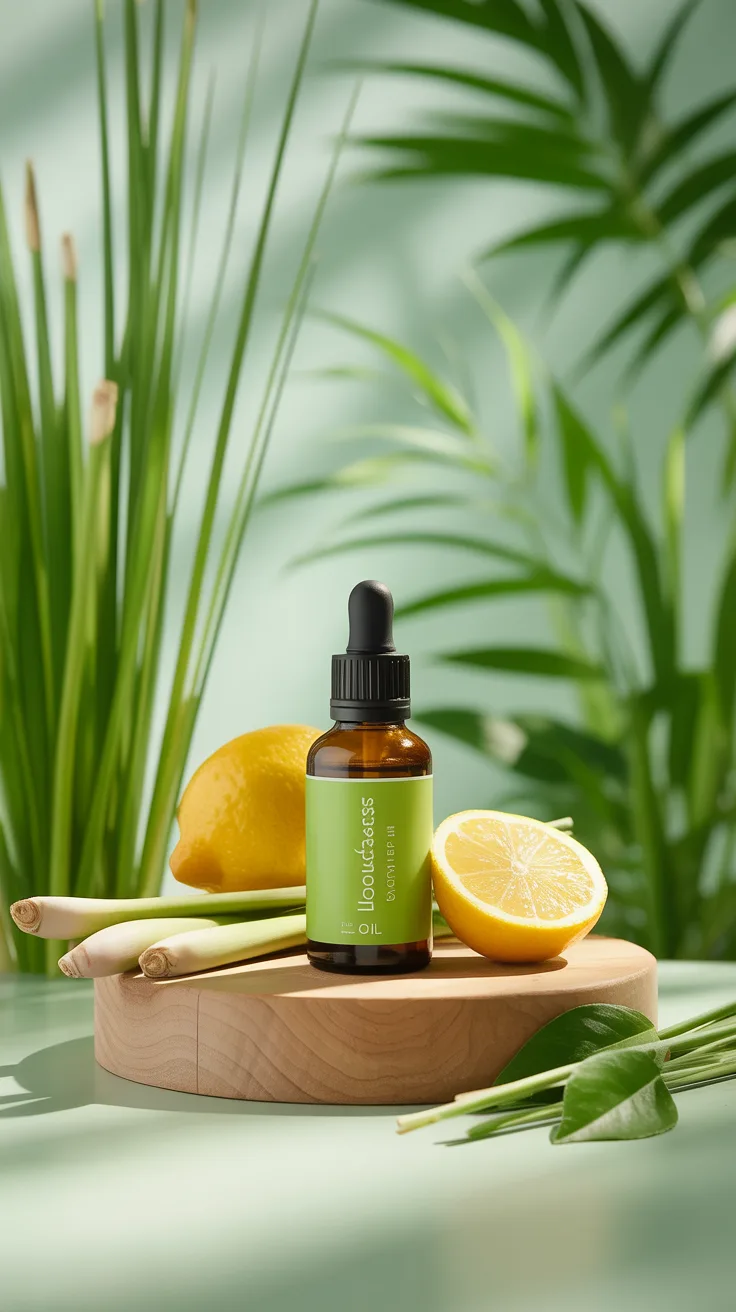
When I first discovered lemongrass oil, I was amazed by its ability to not only fight blackheads but also improve overall skin texture. This citrusy essential oil contains natural astringent properties that help minimize pores and control oil production. A good quality lemongrass essential oil can be a powerful addition to an oily-skin routine.
Lemongrass Oil Benefits
- Controls excess oil production
- Tightens and tones skin
- Provides natural astringent properties
- Offers antimicrobial benefits
DIY Lemongrass Treatments
Here are some of my favorite tried-and-tested recipes:
| Treatment Type | Ingredients | Usage Frequency |
|---|---|---|
| Toner | 2 drops lemongrass + 1 oz alcohol-free witch hazel | Daily |
| Face Mask | 3 drops lemongrass + clay powder + water | Weekly |
| Spot Treatment | 1 drop lemongrass + aloe vera gel | As needed |
5. Eucalyptus Oil: Deep-Cleansing Action for Stubborn Blackheads
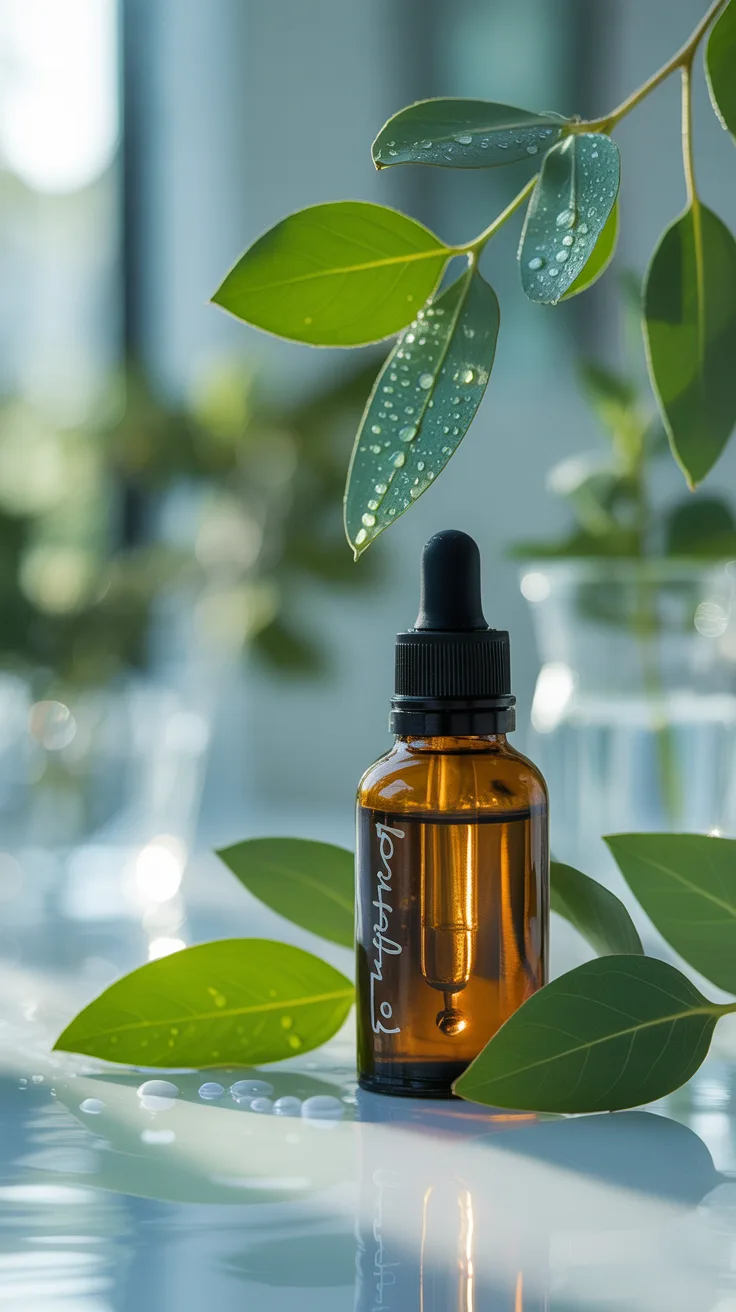
Eucalyptus oil rounds out our top five with its powerful cleansing and purifying properties. Through my experience, I’ve found eucalyptus essential oil particularly effective for those deep, stubborn blackheads that seem resistant to other treatments.
Why Choose Eucalyptus Oil
- Powerful antimicrobial properties
- Deep cleansing action
- Helps dissolve stubborn blackheads
- Refreshing and invigorating scent
Safety Considerations
While effective, eucalyptus oil requires careful handling:
- Always dilute properly (maximum 2% dilution)
- Perform a patch test before full application
- Avoid using near eyes or sensitive areas
- Store in a cool, dark place in dark glass bottles
![]() As an Amazon Associate, I earn from qualifying purchases.
As an Amazon Associate, I earn from qualifying purchases.
Conclusion
After years of experimentation and research, these five essential oils have proven to be some of the most effective natural solutions for treating and preventing blackheads. Remember to always dilute your essential oils properly, perform patch tests, and be consistent with your skincare routine. With patience and proper application, you can achieve clearer, healthier skin using these powerful natural remedies.
For beginners, starting with a curated essential oil starter set for acne-prone skin and a gentle carrier oil like jojoba, grapeseed, or argan can make it easier to build a safe and effective routine.
Key Takeaways
- Essential oils must always be diluted properly before skin application using a suitable carrier oil.
- Consistency is key – results typically show after 2-4 weeks of regular use.
- Combine different oils for enhanced benefits, but never use more than 2-3 at once in a single blend.
- Natural treatments require patience but offer long-lasting results when used correctly.
- Regular skin maintenance and gentle exfoliation help prevent blackhead recurrence.
Frequently Asked Questions
How long does it take to see results with essential oils?
Most people notice improvements within 2-4 weeks of consistent use. However, individual results may vary depending on skin type and severity of blackheads.
Can I use multiple essential oils together?
Yes, you can combine essential oils, but limit your mixture to 2-3 oils at a time and ensure the total dilution ratio remains appropriate for your skin type. If you’re experimenting, a balanced facial essential oil set can be a good place to start.
Are essential oils safe for sensitive skin?
Essential oils can be used on sensitive skin but require proper dilution (usually 1% or less) and careful patch testing before full application.
What’s the best carrier oil to use with essential oils for blackheads?
Jojoba oil is often considered the best carrier oil as it closely mimics skin’s natural sebum. Other good options include grapeseed oil and argan oil, which are lightweight and non-comedogenic.
How often should I apply essential oils for blackheads?
Start with once daily application, preferably in the evening. If your skin tolerates it well, you can increase to twice daily, but always monitor for dryness or irritation.
Can essential oils prevent new blackheads from forming?
Yes, regular use of essential oils can help prevent new blackheads by regulating oil production, maintaining clear pores, and reducing acne-causing bacteria.
Should I dilute essential oils before using them?
Always dilute essential oils before applying to skin. Never use them undiluted as this can cause irritation or chemical burns. A small set of empty glass dropper bottles can make it easier to mix and store your diluted blends.
Can I use essential oils with other skincare products?
Yes, but introduce new products gradually and wait 15-20 minutes between applying different products to avoid potential interactions.
Are there any side effects of using essential oils?
When properly diluted and used as directed, side effects are rare. However, some people may experience mild irritation or sensitivity, especially if using too high a concentration.
How should I store my essential oils?
Store essential oils in dark glass bottles in a cool, dark place away from direct sunlight and heat to maintain their effectiveness and shelf life.
